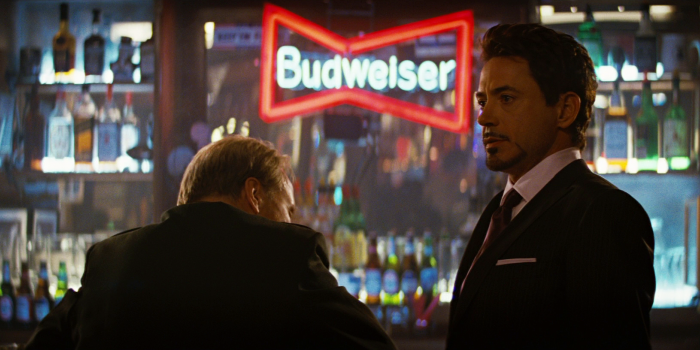
Cast: Rutger Hauer, Jeroen Krabbé, Susan Penhaligon
Director: Paul Verhoeven
Country: Netherlands | Belgium
Genre: Drama | War
Editor’s Notes: The following review is part of our coverage for TIFF’s Flesh + Blood: The Films of Paul Verhoeven which runs from January 24th to April 4th at TIFF Bell Lightbox. For more information on upcoming TIFF film series visit http://tiff.net and follow TIFF on Twitter at @TIFF_NET.
The flag of the Netherlands and orchestral war music kicks off Paul Verhoeven’s two and a half hour war epic, Soldier of Orange, an unconventional story that shows us that wars aren’t always won and lost on conventional battlefields and that nationalistic pride can manifest itself in many ways when one has no choice but to flee to neighboring shores to fight for their homeland. Archival newsreel footage triumphantly heralds the return of the queen of the House of Orange to her homeland as thousands of cheering Dutch citizens fill the streets, all earnestly patriotic for queen and country after a time of grave national tumult. This was a hard earned victory for the Dutch as their official participation in the war had ended as abruptly as it had begun. On May 9th, 1940 German planes bombed Rotterdam. On May 10th, the Dutch forces surrendered and their nation was placed under an occupation that lasted five years. The revolutionaries portrayed in this film are forced to go underground and seek covert ways to abscond to England to fight for their country in a time of Netherland occupation by Nazi Germany and old friends and long time neighbors become potential enemies as Europe was being torn asunder by history’s most reviled tyrannical maniac. It’s a war epic that takes place on university campuses and family beaches as Verhoeven shows us the determining factors that dictate the outcome of a war can often be as simple as having the right kind of currency to operate a payphone.
Soldier of Orange, an unconventional story that shows us that wars aren’t always won and lost on conventional battlefields and that nationalistic pride can manifest itself in many ways when one has no choice but to flee…
Freshman university students are ushered into a great hall like cattle, stripped of clothes and dignity as their tormentors abuse them in school activities that would make Jean Vigo blush. The students are tormented and asked about Hitler in a time when political debate had more dire overtones, all shaved bald in “harmless” fraternity hazing rituals. Rutger Hauer’s Erik Lanshof is forced to sing the school’s song as soup is poured over his head, brutally punished by the president of the fraternity, Guus, for singing off-key. These initiation rites would seem innocent in the face of the impending occupation of their country, and their university would soon lose its traditions and ultimately its walls in only a few short years as the salad days of tennis and drinking with friends would soon be a distant memory. War has been declared between England and Germany, and everything is about to change for the Netherlands, having the dubious distinction of being parked directly between the two countries and possessing valuable coastal territory at London’s back door.

The sound of German planes overhead loom ominously as nighttime lovemaking is rudely interrupted by falling bombs. In a single day the entire reality of the university students’ existence would be changed forever as even the privileged are unable to escape the torment of the German air raids. A legless soldier screams in agony as buildings burn all around him, but Erik is determined to volunteer for the army. The recruiter sits with a blank expression of madness as brains adorn his door and Erik is asked to return in ten days, but his country’s official participation in the war would be over in a single day. Soldiers are told of their surrender in the dusk of Verhoeven’s magic hour light. Their queen has absconded to London and all hope seems lost as there is no national support for resistance.
It eschews traditional battleground sequences for the perspective of the conscientious that fight because their very streets and homes are at stake, and shows that even the privileged are obligated to find a way to fight in the face of tyrannical oppression.
Revolutionaries gather on family beaches and pretend to play games of leisure while families and German soldiers share this future demilitarized zone in a dangerous cacophony of unspoken tension. They are attempting to put together a boat to travel to the beaches of England, but an accident or someone’s secret sabotage puts an end to their plans in a ball of flames. The secret transmissions of neighbors are under surveillance, and the secret codeword of “LOVE” would be the very thing that would destroy the life of one revolutionary as his girlfriend looks a little too “Jewish” to the Gestapo agents that roam the streets of Rotterdam, making an unlikely collaborator from a former patriot as he desperately attempts to defend the one he loved. Some would be brutally tortured and ultimately executed, never quite making it to the shores of England as they meet their end in gratuitous displays of violence that would later become Verhoeven’s signature style in his American films. Erik would remain stoic through all of the hardship, never yielding to the German oppression even as he is imprisoned, writing a letter requesting release on toilet paper using his own shit as ink for pens are a rare luxury between the dark walls of Gestapo prison cells. He would finally find the shores of London and make his mark for all of the Netherlands, making his escape in a brilliant and tense scene where a Dutch boat crew headed to a Swiss vessel act like drunken buffoons to fool the Gestapo agents into allowing them to board.
Soldier of Orange is a World War II tale told without the old Axis versus Allies jingoistic traits of heroism, offering an unseen perspective that shows the parameters of heroism are often more complicated than a young man picking up his rifle for god and country. It eschews traditional battleground sequences for the perspective of the conscientious that fight because their very streets and homes are at stake, and shows that even the privileged are obligated to find a way to fight in the face of tyrannical oppression. Its muted color pallet does little to glorify the heinousness of war, save for the final sequences that mirror the news reel footage at the beginning of the film and show the triumphant return of the queen with the brilliant crisp colors of thousands of waving flags and lanterns that line the streets and illuminate the canals with vibrant shimmering colors. Erik has returned triumphantly, but his old stomping grounds would forever bear the scars of the occupation. The last two friends to survive a war that had officially ended in surrender on its first day toast in somber victory and silent mourning of the salad days of yore and the friends that had lost their lives to unfortunate geographic circumstances.
[notification type=”star”]89/100 ~ GREAT. Soldier of Orange is a World War II tale told without the old Axis versus Allies jingoistic traits of heroism, offering an unseen perspective that shows the parameters of heroism are often more complicated than a young man picking up his rifle for god and country.[/notification]



